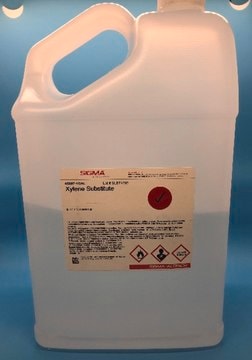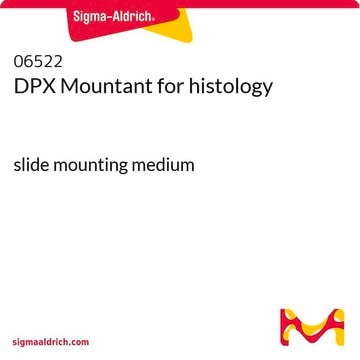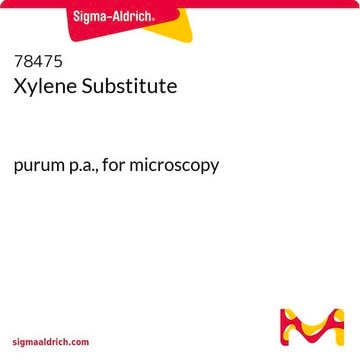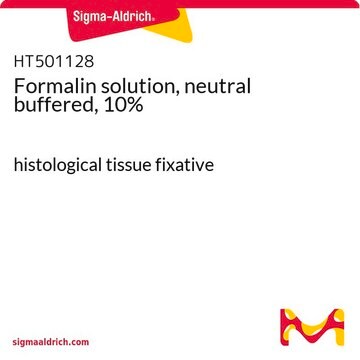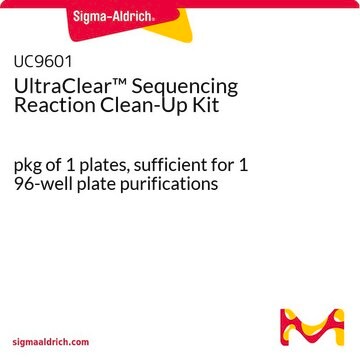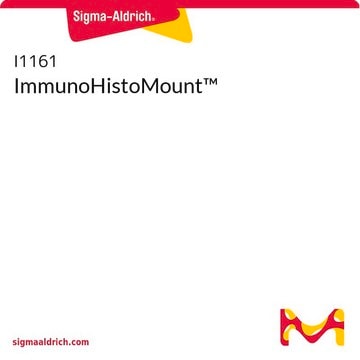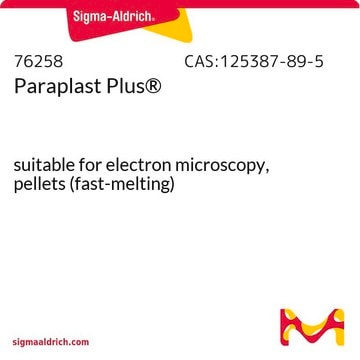H2779
HistoChoice® Clearing Agent
alternative to toluene and xylene
Synonyme(s) :
dewaxing mixture for paraffin tissue sections
About This Item
Produits recommandés
Forme
liquid
Caractéristiques du produit alternatif plus écologique
Designing Safer Chemicals
Learn more about the Principles of Green Chemistry.
sustainability
Greener Alternative Product
Couleur
colorless
Densité
0.760-0.820 g/mL
Application(s)
hematology
histology
Autre catégorie plus écologique
, Aligned
Température de stockage
room temp
Description générale
We are committed to bringing you Greener Alternative Products, which adhere to one or more of The 12 Principles of Greener Chemistry. This product has Inherently Safer Chemistry, compared to the standard use of formalin for tissue processing.
Application
- It is suitable as an alternative to toluene and xylene for dewaxing paraffin tissue sections. Prepared slides are suitable for antibody probing applications and in situ hybridizations.
- It has been employed in a study to explain the recalcitrance of lignocellulosic plant cell walls to enzymatic degradation.
- It has been used to develop a novel method to improve sensitivity for the localization of miRNA and their target transcripts in plants.
- It has been used to study the correlation of cytoplasmic ADP-ribosylation levels with markers of patient outcome in human cancers.
Actions biochimiques/physiologiques
Caractéristiques et avantages
- Non-toxic, non-carcinogenic, and odorless.
- Non-flammable.
- Preserves native antigenic and nucleic acid sites.
- Compatible with many organic mounting media.
- Dissolves wax faster and evaporates slower than xylene.
- Can be used in automated processors.
- Tissues retain their original structure.
Informations légales
Mention d'avertissement
Warning
Mentions de danger
Conseils de prudence
Classification des risques
Eye Irrit. 2 - Skin Irrit. 2 - STOT SE 3
Organes cibles
Respiratory system
Code de la classe de stockage
10 - Combustible liquids
Classe de danger pour l'eau (WGK)
WGK 3
Point d'éclair (°F)
142.0 °F
Point d'éclair (°C)
61.1 °C
Équipement de protection individuelle
Eyeshields, Gloves, type ABEK (EN14387) respirator filter
Certificats d'analyse (COA)
Recherchez un Certificats d'analyse (COA) en saisissant le numéro de lot du produit. Les numéros de lot figurent sur l'étiquette du produit après les mots "Lot" ou "Batch".
Déjà en possession de ce produit ?
Retrouvez la documentation relative aux produits que vous avez récemment achetés dans la Bibliothèque de documents.
Les clients ont également consulté
Contenu apparenté
Three-dimensional (3D) printing of biological tissue is rapidly becoming an integral part of tissue engineering.
Three-dimensional (3D) printing of biological tissue is rapidly becoming an integral part of tissue engineering.
Three-dimensional (3D) printing of biological tissue is rapidly becoming an integral part of tissue engineering.
Three-dimensional (3D) printing of biological tissue is rapidly becoming an integral part of tissue engineering.
Notre équipe de scientifiques dispose d'une expérience dans tous les secteurs de la recherche, notamment en sciences de la vie, science des matériaux, synthèse chimique, chromatographie, analyse et dans de nombreux autres domaines..
Contacter notre Service technique